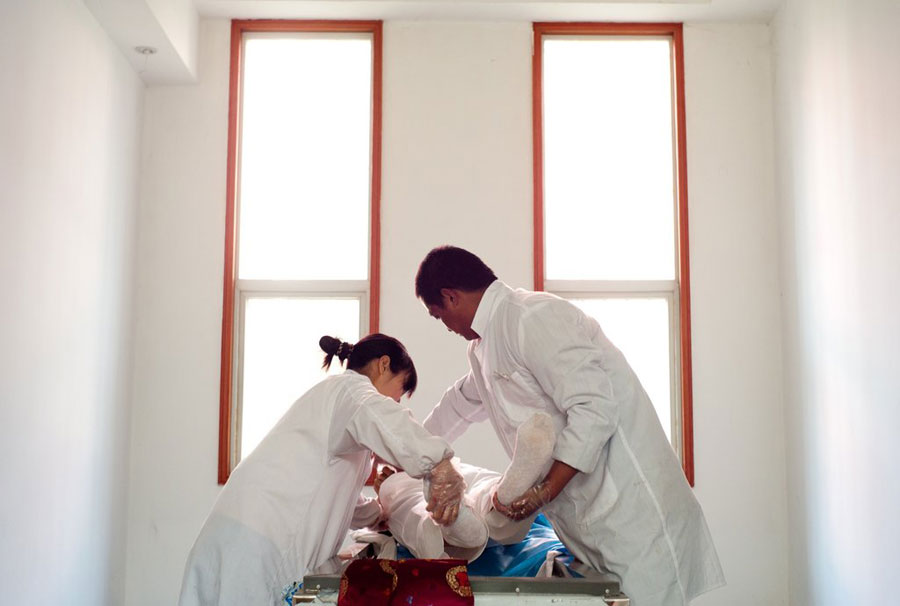Beauty of lipstick on a corpse
Their job is to give the deceased a final glimmer of dignity. Cosmeticians, or morticians as they are commonly called, give a final makeover to those who have passed away.
Zeng Guixiang, a post 90s woman from Wuhan, Hubei province, dons a disposable uniform, medical mask and silica gel grooves each day before she starts work.
She enters the cold closet and calmly opens the ice locker to collect the body. "The old man died normally. His frozen body still has blood in the mouth and nose," Zeng said.
Zeng, along with her colleague Zhou Shun, cuts off the clothes, covers with white cloth before cleaning the body.
Once clean they dress the deceased in clean clothes and apply make-up to make the deceased's face look flushed.
"To treat the dead as if they were alive and to let them leave in a dignified way is the biggest console for family members," said Zeng.
In some foreign countries, body cosmetics is a high-priced private service. But in China, it's cheap and targets ordinary people. One may treat more than ten bodies in a morning, making the service more like streamline operation, said Zeng.
The job is extraordinary for Zeng and her colleagues. They have to face rotten or broken bodies on many occasions. Zeng said she was afraid at the beginning and now has got used to it.
Zhou Shun's parents were worried that she could not find a boyfriend due to her job. But Zhou said the job gave her different feeling towards death and life.
"Death is the last station of one's life. I feel a great honor to dress up the dead and give them the last dignity," said Zhou.
 |
|
Zeng Guixiang dresses a dead person with the help of a colleague in Wuhan, Hubei province on March 26, 2012. [Photo/CFP] |